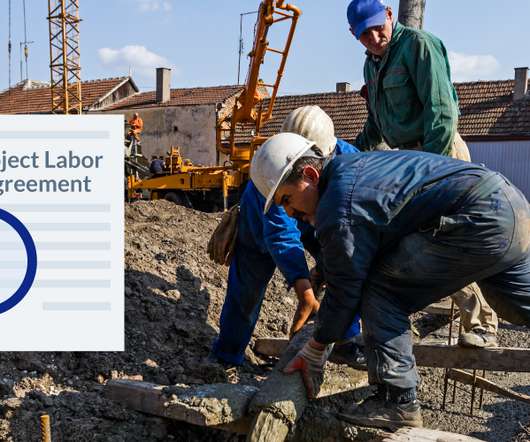Do Project Labor Agreements Restrict Competition?
Construction Dive
JANUARY 22, 2015
These are pre-hire agreements between a general contractor or a construction manager and a designated collective bargaining representative for all labor on the project. Labor is not restricted to union members, although non-union labor must be hired through union halls and paid the negotiated rates.














Let's personalize your content